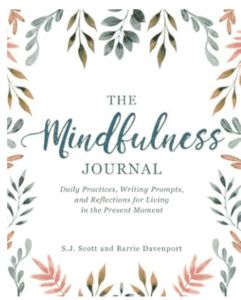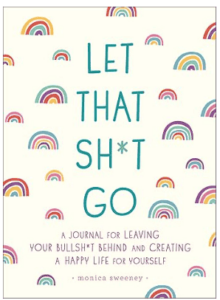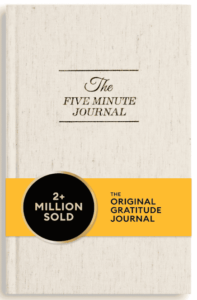Feeling overwhelming sadness is one of the hardest places to be in life. Let these powerful journaling prompts for depression help you find relief, calm, and brightness in your daily life.
Did you know that journaling can be a powerful tool for managing depression?
According to science, writing about one’s emotions can significantly reduce stress and improve mental health. If you’re struggling with depression, incorporating journaling into your daily routine might be the key to reclaiming your life.
In this blog post, we’ll explore how journaling can benefit mental health, provide practical tips on getting started, and offer specific prompts to help you navigate through sadness and depression.
This post is all about journaling prompts for depression.
Table of Contents
Toggle1. How to Journal for Mental Health
Understanding the Benefits of Journaling
It is proven that if you believe something will help you, it often will. In psychology, we call this the placebo effect. Understanding the science behind why journaling can help with depression is imperative. This knowledge will make your journaling practice even more effective and provide you with the foundation you need to kick-start your healing journey.
Journaling has been recognized for its therapeutic benefits. It’s like having your own therapist, someone you can confide in. From a biopsychological perspective, journaling can help regulate emotions, reduce anxiety, and improve overall mental well-being.
When we write about our thoughts and feelings, we activate brain regions associated with emotional processing and cognitive control, such as the prefrontal cortex and the amygdala. This process can lead to decreased activity in the amygdala, which is often overactive in individuals with depression.
Journaling also provides a safe space to express emotions without fear of judgment. It allows for self-reflection and helps us gain insights into our emotional states. By putting thoughts into words, we can organize and make sense of our experiences, leading to greater self-awareness and emotional clarity.
Biopsychologically speaking, journaling engages our cognitive processes, activating areas of the brain involved in self-reflection, emotional regulation, and memory recall. When we put our thoughts into words, we activate the prefrontal cortex, enhancing our ability to make sense of complex emotions and experiences.
Journaling for healing goes beyond mere catharsis; it’s about creating a narrative that integrates our thoughts and feelings, fostering emotional resilience and promoting psychological well-being.
Research shows that regular journaling can reduce stress, improve mood, and even strengthen immune function—a testament to our mind-body connection.
Getting Started
To start journaling, you don’t need much—just a notebook and a pen. Here are some helpful hacks to incorporate journaling into your routine:
- Set a Regular Time: Choose a specific time each day to write in your journal. Consistency is key to forming a habit.
- Find a Comfortable Space: Create a comfortable and quiet space where you can focus on your writing without distractions. Make tea, bring a blanket and light a candle. Make it enjoyable!
- Choose Your Tools: Whether you prefer a traditional notebook and pen or a digital app, find what works best for you.
- Start Small: Begin with just a few minutes each day. As you become more comfortable, you can gradually increase the time you spend journaling.
- Be Honest: Write openly and honestly about your thoughts and feelings. Remember, your journal is for your eyes only.
2. What Do You Journal About When You Are Sad?
When you’re feeling sad, there are several different things you can focus on. However, the most important thing is to journal about what is troubling you, even if it seems small.
By putting your thoughts and feelings onto paper, you can express them and leave them on the page, which can provide a sense of relief and clarity.
Expressing Emotions
The most important thing is to validate your emotions, to give them space to be and feel them. Bottling up feelings can exacerbate depression and lead to further emotional distress.
Here are some prompts to help you explore your sadness:
- When did I start feeling this way? Do I remember what triggered it?
- What are the underlying causes of my sadness?
- How does my body feel when I am sad?
- What thoughts run through my mind when I am sad?
Finding Gratitude
Gratitude journaling can shift your focus from negative to positive experiences. Research in positive psychology suggests that regularly practising gratitude can enhance overall well-being and reduce symptoms of depression.
Here are some prompts to help you cultivate gratitude:
- What are three things I am grateful for today?
- Who has made a positive impact on my life recently and why?
- What positive experiences have I had this week?
- What qualities do I appreciate about myself?
- What sparks joy in my day-to-day life?
- What can I do now, that will make me grateful?
Identifying Triggers
Understanding the reasons behind your sadness is crucial for healing. By recognizing your patterns and identifying triggers in advance, you can take proactive steps to avoid feeling unhappy. This self-awareness is key to managing your emotions effectively and fostering a sense of well-being.
Consider the following prompts:
- When do I feel most sad?
- What events or thoughts trigger my depression?
- How do I usually respond to these triggers?
- What coping strategies can I use to manage my sadness?
3. Powerful Journaling Prompts for Depression
Self-Reflection Journal Prompts for Depression
Self-reflection is essential for personal growth and emotional healing. These prompts are designed to help you explore your thoughts, beliefs, and experiences:
- What deeply held beliefs shape my perception of myself?
- What are the core values and beliefs that define my sense of identity?
- How do these beliefs influence my thoughts, emotions, and behaviors?
- Have these beliefs evolved over time, and if so, how?
- In what ways have I grown and evolved in the past year?
- What specific challenges have I faced, and how have I navigated through them?
- What lessons have I learned from these experiences?
- How have these lessons contributed to my personal development and growth?
- What do I consider to be my greatest strengths and weaknesses?
- What talents, skills, or qualities do I excel in and find fulfilling?
- In what areas do I perceive myself as having weaknesses or areas for improvement?
- How do I harness my strengths to overcome obstacles and achieve my goals?
- What insights have I gained from the challenges I’ve encountered?
- What were the significant challenges or adversities I faced recently?
- How did I respond to these challenges, and what did I learn from the experience?
- In what ways have these challenges shaped my perspective and resilience?
- What values guide my decisions and actions?
- What are the fundamental values that I prioritize in my life?
- How do these values influence the choices I make in various aspects of my life?
- Do my current lifestyle and decisions align with these values, and if not, what adjustments can I make?
Future-Focused Journal Prompts for Depression
For motivation is best to set goals and envision a positive future. These prompts encourage you to think about your aspirations and how you can achieve them:
- What are my goals for the next six months?
- What specific achievements or milestones do I aim to reach within the next half-year?
- How do I envision my life progressing or improving during this time frame?
- What steps can I take to ensure that I stay focused and motivated towards achieving these goals?
- How can I enhance my mental health and well-being?
- What practices or activities have a positive impact on my mental health?
- Are there any habits or behaviors that I need to change or incorporate into my routine?
- What resources or support systems can I utilize to prioritize and maintain my mental well-being?
- What are my aspirations for the long term?
- What dreams or goals do I aspire to accomplish in the distant future?
- How do these long-term aspirations align with my values and core beliefs?
- What steps can I take now to lay the groundwork for achieving these aspirations in the future?
- How can I build a life that reflects my values and priorities?
- What are the core values that I hold dear and wish to embody in my daily life?
- In what ways can I align my actions, decisions, and lifestyle with these values?
- Are there any adjustments or changes I need to make to create a life that feels authentic and fulfilling?
- What positive changes do I envision for my life?
- What aspects of my life do I wish to improve or change for the better?
- How do these desired changes align with my overall goals and aspirations?
- What actionable steps can I take to initiate and sustain these positive changes in my life?
Future Positive Affirmations Journal Prompts for Depression
Positive affirmations are statements that challenge negative thoughts and promote a healthy mindset. Writing and reflecting on affirmations can help rewire your brain to think more positively. Here are some prompts to get you started:
- What are three positive affirmations that resonate with me, and why are they meaningful?
- What empowering statements or beliefs do I want to affirm about myself and my life?
- How do these affirmations align with my values, goals, and aspirations?
- Why do these particular affirmations inspire confidence, motivation, or inner peace within me?
- How do these affirmations affect my emotional state?
- When I repeat these affirmations to myself, what emotions or sensations do I experience?
- Do these affirmations evoke feelings of confidence, self-assurance, or optimism within me?
- How do these positive emotions contribute to my overall well-being and resilience?
- What negative thoughts or beliefs do I need to counteract with positive affirmations?
- What recurring negative thoughts or self-limiting beliefs do I often struggle with?
- How do these negative thoughts impact my self-esteem, mood, or behavior?
- In what ways can I challenge and reframe these negative thoughts with affirmations that promote self-love, acceptance, and empowerment?
- How can I integrate affirmations into my daily routine?
- What strategies or practices can I use to incorporate affirmations into my daily life?
- Can I set aside specific times during the day to recite affirmations, such as in the morning or before bed?
- Are there visual cues or reminders I can use to prompt myself to practice affirmations regularly?
4. Additional Resources
Here are some recourses, that can also help you deal with your depression.
- Apps: Day One, Penzu, Journey
- Online Communities: Reddit’s r/Journaling, The Mighty
- Mental Health Resources: National Alliance on Mental Illness (NAMI), Mental Health America (MHA)
- Books: “The Artist’s Way” by Julia Cameron, “The Miracle Morning” by Hal Elrod
5. The Best Guided Journals for Depression
If you prefer having your journal and prompts conveniently in one place, and seek a guiding hand along your mental health journey, guided journals for depression are the perfect solution for you.
Get ready to explore a selection of the best-guided journals for depression available for you on Amazon!
The Artist’s Way: Workbook
The Workbook, a spiral-bound companion to “The Artist’s Way,” offers exercises and prompts to unlock creativity, overcome blocks, and foster a fulfilling artistic practice. It provides practical tools to inspire and empower a more creative life.
The Mindfulness Journal: Daily Practices, Writing Prompts, and Reflections for Living in the Present Moment
This comprehensive paperback offers daily practices, writing prompts, and reflections tailored to help you live mindfully. With its accessible format and insightful content, it’s the perfect companion for anyone seeking to deepen their mindfulness practice and find peace in the midst of daily life.
Let That Sh*t Go: A Journal for Leaving Your Bullsh*t Behind and Creating a Happy Life
This journal by Monica Sweeney offers a refreshing approach to journaling, infused with humor and practical wisdom. Through thought-provoking prompts and exercises, this journal empowers readers to release negativity, embrace self-compassion, and cultivate a more fulfilling life. With its irreverent tone and insightful guidance, it’s the perfect companion for anyone seeking to let go of baggage and find inner peace.
The Breakup Journal – 30 Days To Get Over Them
The Five Minute Journal is a simple yet powerful tool for cultivating gratitude and positivity in just minutes a day. With its structured format, it guides users through morning and evening reflections, including gratitude lists, daily goals, affirmations, and highlights of the day. The journal’s prompts are rooted in positive psychology, helping users build a habit of mindfulness and self-awareness. Beautifully designed with a durable hardcover and minimalist layout, it’s perfect for anyone seeking a quick, effective way to focus on the good and create a more intentional life.











